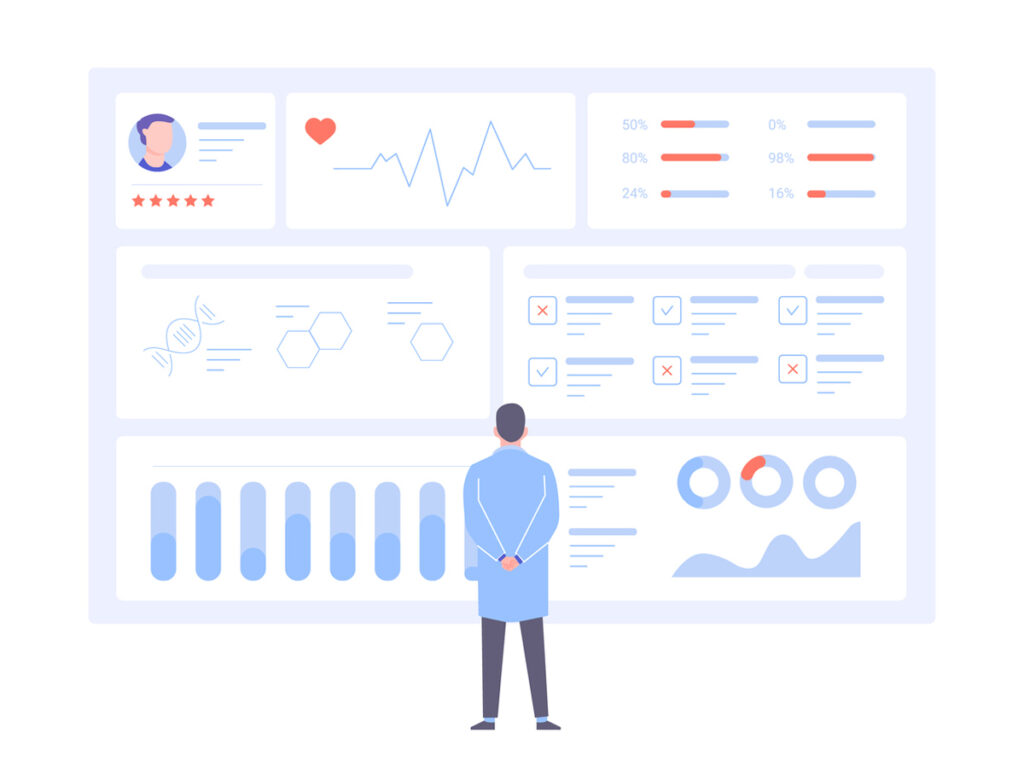September 2022 – The Journal of Healthcare Contracting

Tensions high over health data privacy, AMA patient survey finds
A survey (PDF) released this summer by the American Medical Association (AMA) reveals unresolved tension over the eroding security and confidentiality of personal health information in a wired society and economy. The survey of 1,000 patients was conducted by Savvy Cooperative, a patient-owned source of health care insights, at the beginning of 2022 and found concern over data privacy protections and confusion regarding who can access personal health information.
According to the survey:
- More than 92% of patients believe privacy is a right and their health data should not be available for purchase.
- Nearly 75% of patients expressed concern about protecting the privacy of personal health data.
- Only 20% of patients indicated they knew the scope of companies and individuals with access to their data. (This concern is magnified with the U.S. Supreme Court ruling in Dobbs v. Jackson Women’s Health Organization as the lack of data privacy could place patients and physicians in legal peril in states that restrict reproductive health services, AMA said in a release.)
The survey indicated patients are most comfortable with physicians and hospitals having access to personal health data, and least comfortable with social media sites, employers and technology companies having access to the same data, AMA said in a release.
The survey also found an overwhelming percentage of patients demand accountability, transparency, and control as it relates to health data privacy. More than nine out of ten (94%) patients want companies to be held legally accountable for uses of their health data. A similar majority of patients (93%) want health application (app) developers to be transparent about how their products use and share personal health data. To prevent unwanted access and use of personal health data, patients want control over what companies collected about them and how it is used:
- Almost 80% of patients want to be able to opt-out of sharing some or all their health data with companies.
- More than 75% of patients want to opt-in before a company uses any of their health data.
- More than 75% of patients want to receive requests prior to a company using their health data for a new purpose
“Patients trust that physicians are committed to protecting patient privacy—a crucial element for honest health discussions,” said AMA President Jack Resneck Jr., M.D. “Many digital health technologies, however, lack even basic privacy safeguards. More must be done by policymakers and developers to protect patients’ health information. Most health apps are either unregulated or underregulated, requiring near and long-term policy initiatives and robust enforcement by federal and state regulators. Patient confidence in data privacy is undermined as technology companies and data brokers gain access to indelible health data without patient knowledge or consent and share this information with third parties, including law enforcement.”
Higher cardiovascular health may partially offset increased genetic risk for stroke
Genes and lifestyle factors together play a role in stroke risk. However, even for people at high risk for stroke, adopting a healthy cardiovascular lifestyle may significantly lower the risk of stroke in their lifetime, according to new research published today in the Journal of the American Heart Association, an open access, peer-reviewed journal of the American Heart Association.
Researchers estimated the lifetime risk of a first stroke according to levels of genetic risk based on a stroke polygenic risk score. Polygenic risk scores were derived from over 3 million genetic variants, or single-nucleotide polymorphisms, across the whole genome. Participants were categorized as having either low, intermediate or high genetic risk based on an analysis of how many stroke-related single-nucleotide polymorphisms they had. The number of SNPs related to stroke was standardized at more than 2.7 million for white adults and more than 2.2 million SNPs for Black adults. The researchers investigated the potential impact of the American Heart Association’s Life’s Simple 7 recommendations and whether higher Life’s Simple 7 cardiovascular score (equating to better cardiovascular health) lessened the negative impact of a high genetic risk on the lifetime risk of stroke.
Life’s Simple 7 scores are a composite measure of seven modifiable cardiovascular disease risk factors: smoking status, physical activity, healthy diet, body mass index, total cholesterol, blood pressure and glucose levels. Cardiovascular health is categorized as optimal, average or inadequate based on each participants’ total score of ideal cardiovascular health components according to Life’s Simple 7. For this analysis, Life’s Simple 7 scores were combined with the polygenic risk score to estimate lifetime stroke risk.
The study found:
- At age 45, study participants with the lowest polygenic risk scores had the lowest lifetime risk of stroke, 9.6%. The lifetime risk of stroke was 13.8% for participants with an intermediate polygenic risk score and 23.2% for participants with a high polygenic risk score.
- Those with both high genetic risk for stroke and low cardiovascular health had the highest lifetime risk of stroke score of 24.8%.
- Across all polygenic risk score categories (low, intermediate and high), people with optimal cardiovascular health had the most significant reduction in lifetime risk of stroke. Participants who had a high polygenic risk and optimal cardiovascular health were observed to mitigate their lifetime risk of stroke by up to 43%, compared to those with inadequate cardiovascular health. This translated into to about six additional years without a stroke.
The authors note that one major limitation of the study is that the polygenic risk score is a tool that needs improvement before it can be used broadly. The tool was developed and validated only among people who are white, which means it cannot be used to predict stroke risk accurately in people from diverse racial or ethnic backgrounds.
